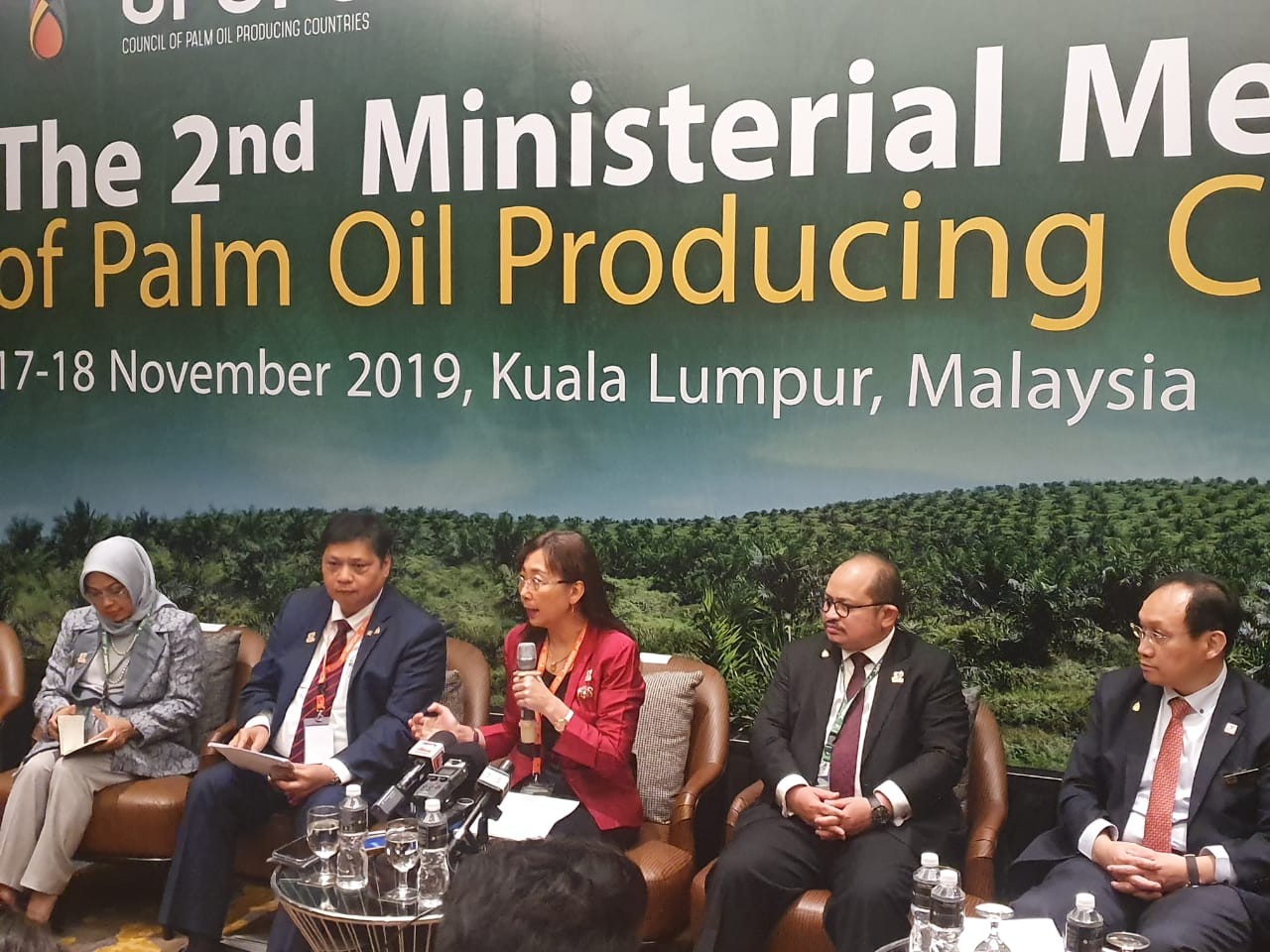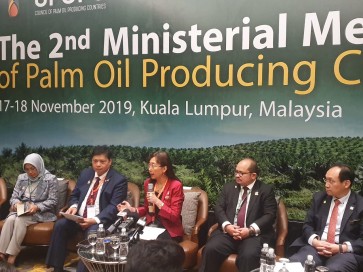2019: Tackling palm oil disputes, challenges
The year past has seen one of Indonesia's top commodities in the global trade spotlight, with the country standing its ground in its spat with the EU while attempting to address the challenges of sustainability and farmers' welfare at home.
Change Size
 Coordinating Economic Minister Airlangga Hartarto (second left) appears with Malaysian Primary Industries Minister Theresa Kok (center) during a press briefing on Nov. 18, 2019 at the Ministerial Meeting of Palm Oil Producing Countries in Kuala Lumpur. (The Jakata Post/Adrian Wail Akhlas)
Coordinating Economic Minister Airlangga Hartarto (second left) appears with Malaysian Primary Industries Minister Theresa Kok (center) during a press briefing on Nov. 18, 2019 at the Ministerial Meeting of Palm Oil Producing Countries in Kuala Lumpur. (The Jakata Post/Adrian Wail Akhlas)
I
ndonesia’s palm oil sector has been embroiled in disputes over palm oil with the European Union for most of 2019, characterized by tit-for-tat trade spats, tariffs and lawsuits amid the government’s efforts to empower smallholder oil palm farmers.
Palm oil is one of Indonesia’s top foreign exchange earners and contributes 1.5 to 2.5 percent to gross domestic product (GDP). But the commodity has faced growing restrictions overseas in recent years, especially in the EU – Indonesia’s second largest buyer in 2018.
The commodity has been linked to environmental degradation, particularly deforestation, but Indonesia has interpreted the measure as a protectionist move for locally produced vegetable oils like soybean oil and sunflower oil.
In June 2018, the European Parliament decided on a 32 percent renewable energy target, under which it intended to phase out palm oil biodiesels by 2030. The European Commission (EC), the EU’s executive arm, then adopted the Renewable Energy Directive II (RED II) in March 2019.
Following the EC’s decision, President Joko “Jokowi” Widodo and Malaysian Prime Minister Mahathir Mohamad sent a joint letter to the bloc that same month, objecting to the directive as “unfair” and “discriminatory”. Indonesian ministers also threatened to take the case to the World Trade Organization (WTO) as a form of unfair trade, whether as an independent lawsuit or together with Malaysia.
Malaysia is the world's second largest palm oil producer after Indonesia.
Responding to the objections, the bloc explained that the RED II was not intended to target specific biofuels or feedstocks, and that it was based on 2008 -2015 deforestation data that showed a large proportion of deforestation was associated with the cultivation of oil palm.

















